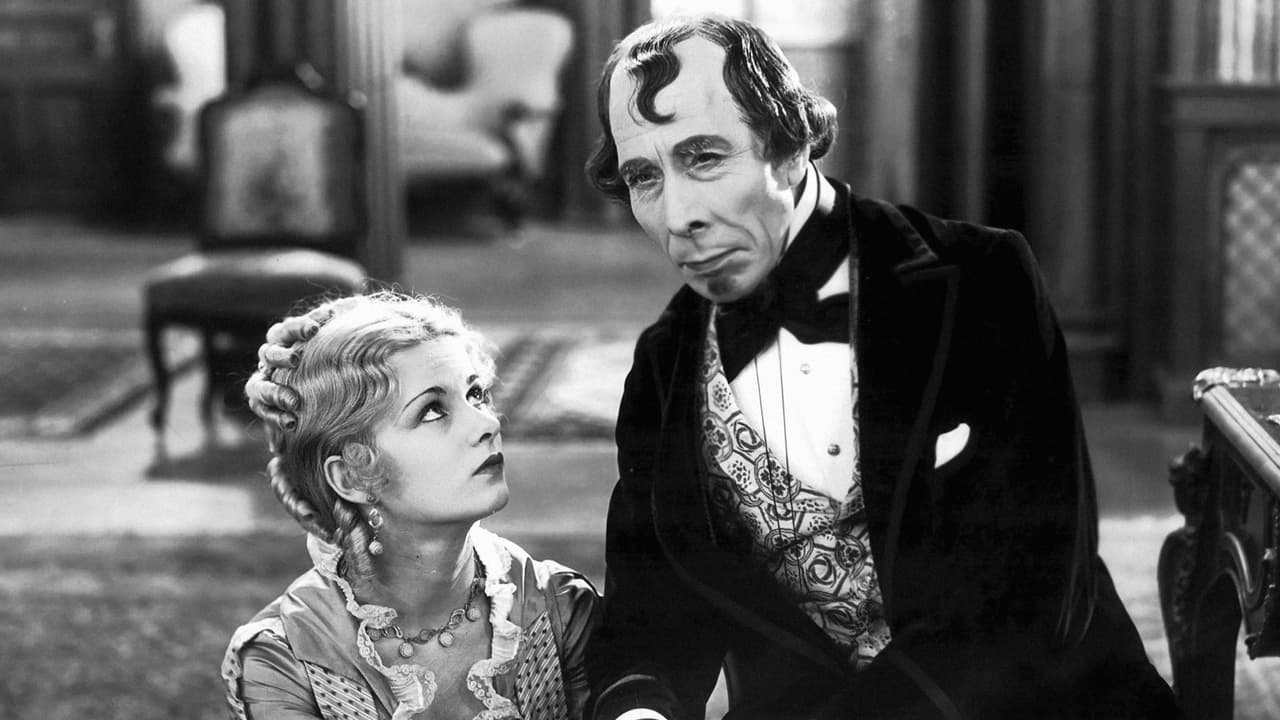Karry
Best movie of this year hands down!
Btexxamar
I like Black Panther, but I didn't like this movie.
Invaderbank
The film creates a perfect balance between action and depth of basic needs, in the midst of an infertile atmosphere.
Teddie Blake
The movie turns out to be a little better than the average. Starting from a romantic formula often seen in the cinema, it ends in the most predictable (and somewhat bland) way.
mukava991
In this filmed stage play, Arliss enacts the celebrated British statesman as he outsmarts a glamorous spy (Doris Lloyd) working for Russia who is trying to disrupt Disraeli's attempts to arrange for Britain to purchase the Suez Canal. One must commit to listening very carefully to the dialogue and squinting earnestly at the images to work up any involvement in this time- tarnished strip of celluloid, so weak is the soundtrack and so murky are the visuals. If these efforts are made, some entertainment can be derived. Arliss commands attention with his hawklike features, extreme coiffure (a sort of pageboy style with a big curl plastered down the middle of his forehead) and theatrically trained diction. He performs this role which he had played on stage and in the silent era with energy and relish. His real-life wife, Florence, plays his wife here and seems to spend half of her screen time chuckling at her husband's utterances. Joan Bennett in the full bloom of late teenage loveliness does "British lady" very well as a noblewoman whom Disraeli takes under wing, as does the strapping Anthony Bushell as her love interest who also works as Disraeli's secretary and agent.
edwagreen
Story of how British Prime Minister, Benjamin Disraeli, outwitted the Russians and was able to purchase the Suez Canal.Arliss won the Oscar for best actor. He was the first Jewish person to win the Academy Award. (I know the Oscars had been business for a mere 2 years.)Arliss showed comedic gifts in his Oscar-winning performance. His stalwart behavior in defense of England will always be an endearing quality. He was ably supported by his wife, Florence, and especially by Russian spy, Doris Lloyd. Joan Bennett did fine in her part of the girlfriend of an aide to Disraeli.Unfortunately, Vitograph's sound has not withstood the passing years. The film needs to be preserved with sound improvement.There are overtones of anti-Semitism in the film. It is never explained how Disraeli was able to outmaneuver Gladstone for the Prime Minister's position.The ending is really a miracle at its nicest.
calvinnme
This is one of the few very early talkies that is neither a musical nor an overly dull stage production. It is a fascinating look into a very brief episode in the professional life of British Prime Minister Benjamin Disraeli - specifically his effort in obtaining the Suez Canal for Great Britain. Arliss gives a well-deserved Academy Award winning performance as the prime minister, and he is so adept at dialogue and with conveying his mood with glances and small gestures and the pace of the film is so brisk that you hardly notice the 1929 movie camera that cannot budge an inch. In this short 90 minute film Disraeli plays matchmaker, mentor, breaker of a spy ring, and master dealmaker with a sophistication of dialogue and acting that is rarely seen in films for another ten years. Particularly moving is the portrayal of Disraeli's relationship with his wife, played by Arliss' actual wife to whom he was wed in 1899 until his death. The mutual respect and tenderness the couple show for one another is quite touching.The audio and video of the VHS version of this film is really in bad shape. There is very bad background hissing in the audio which can make the dialogue - so important to the development of the plot - sometimes difficult to understand. The video doesn't have much scratchiness to it, but there are periods of time when blurry areas will appear on the screen that can be quite distracting, and the contrast is quite poor. However, this film is quite enjoyable 80 years after it was made. Seeing that it is much more than a rickety curio, it would be nice to see Warner Home Video clean up the film technically as much as is possible and put it on DVD.
Ron Oliver
London, 1874. The old man sits in the great office, endlessly plotting & planning, benevolently scheming for the good of Queen & Empire. Although not too busy to further the romance of two young persons he loves, he puts all his talents & force of will into keeping Russia from dominating Asia & British India. This can only be achieved by thwarting a wily female spy & secretly purchasing control over the Suez Canal from the corrupt Egyptian khedive. Will he fail & suffer political disaster, or triumph & forever make famous the name of Prime Minister Benjamin DISRAELI?Reveling in his most famous film role, George Arliss gives an Oscar-winning acting lesson. Endlessly fascinating to watch, his every twitch of eyebrow or turn of hand is capable of great humor or emotion. He becomes Disraeli, inhabits the fellow, and presents him before our eyes. It's a shame that Mr. Arliss has become obscure & almost forgotten to modern movie fans. It is their loss.Although George Arliss is the main reason to watch any George Arliss film, he is given good support here from Florence Arliss, his real-life wife, playing Disraeli's wife Mary. Also appearing are Doris Lloyd as Mrs. Travers, the convivial spy; Joan Bennett & Anthony Bushell as the two young lovers; and Ivan F. Simpson as a Jewish financier.If the production appears rather stiff & stagy, it must be remembered that this is a very early talkie, and that directors & performers were still adapting to the demands & restrictions imposed upon them by that new tyrant, the microphone. Just keep your attention on Arliss - his acting skills transcend the limitations.It must be mentioned that the film distorts historical reality in two very significant areas. Opening in 1874, it portrays Disraeli as a very happily married man with a loving, elderly wife. The marriage had indeed been an outstanding one, but Mary had died of cancer in 1872. Also, financier Hugh Myers, who bankrolls the Suez scheme, is fictional. It was the Rothschild family who came to Disraeli's aid.

